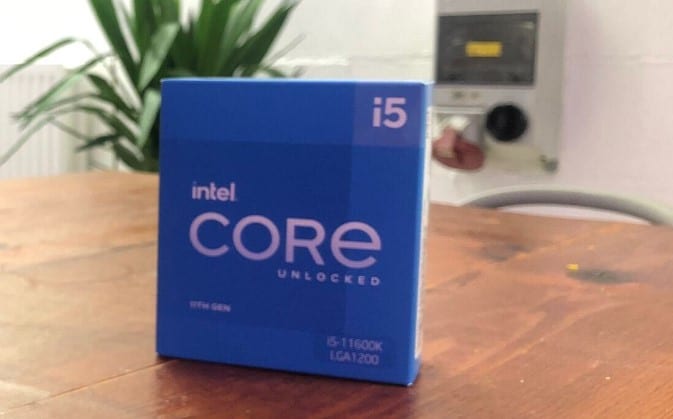Is Intel i5 compatible with Windows 11? Answered
Is Intel i5 compatible with Windows 11? Let's find out

WePC is reader-supported. When you buy through links on our site, we may earn an affiliate commission. Prices subject to change. Learn more
Looking to upgrade to Windows 11 but not sure if your Core i5 processor is compatible? This article will help. Here, we’ll guide you through whether or not Intel i5 is compatible with Windows 11, how you upgrade, and if it’s worth getting a better processor just to be on the newer operating system. We alreayd know that some i3’s are compatible with Windows 11, but not all of them. Is this the case with the i5? Let’s take a look.
Intel Core i5 CPU compatibility with Windows 11
The answer is pretty clear-cut in this case. Microsoft has made clear that for Intel Core processors, whether they belong to the i3, i5, i7, or i9 lineup, Windows 11 is only compatible with those that are 8th generation or above. So, all the latest Core i5 processors, including the 14th Gen, 13th generation Core i5-13600K, 12th generation Core i5-12400, 11th generation Core i5-11400, and so on down to the 8th generation Core i5-8400, are all compatible with Windows 11. The selection above will all work with Windows 11.
Unfortunately, Core i5 CPUs that belong to the 7th generation of Core processors and below will not work with Windows 11. If you have one, your only option would be to upgrade to a newer generation if you want to run the latest OS.
How to tell what generation an Intel processor belongs to
For Core processors, the first one or two digits in the model number represent the CPU’s generation. For example:
- Core i5-13600K. The first two digits in the model number are 13. This is a 13th-generation i5 processor.
- Core i5-3470. The first digit in the model number of this CPU is a 3, meaning the i5-3470 is a 3rd-generation i5 processor.
- Core i5-9400F. The first digit here is 9, so we have a 9th-generation processor in this case.
You can find out what processor your system is currently running via the “Task manager” or “System Information” application. Simply examine the entry against “processor” or “CPU” to find out what the full name of your CPU is. An easy way to find out whether or not your system is compatible with Windows 11 is to download Microsoft’s PC health check application. The app checks your system specs for you and tells you whether you’re good to go or not. Here’s more on downloading and installing Windows 11.
If you’re looking to equip your system with a new Core i5 processor, I strongly recommend opting for one that belongs to the newest 13th-generation lineup, such as the 13400F or the 13600K. The 12th-gen options also remain viable, and I can’t recommend you go any lower than the 10th-gen unless you’re looking to spend the bare minimum. You start to see significantly diminished multicore performance for little money saved. The 8th-gen i5s will let you run Windows 11, but they lack the hyperthreading offered by 10th-gen and above, which offers you serious performance gains.
Should you upgrade from your i5?
If you have an i5 processor that’s 7th-generation or older, you can’t use Windows 11 without upgrading. It doesn’t make sense to buy a better processor just to transition from Windows 10 to 11. The difference in performance and design isn’t all that vast. Windows 10 is still an excellent OS loved by PC enthusiasts. However, if you were looking to upgrade your old processor anyway, having the ability to install Windows 11 for free is certainly a nice plus. We’ve put a couple of options for you below, from the older 13th Gen and newer 14th Gen chipsets. Both will run Windows 11, and give you plenty of gaming and multi-tasking performance, too.
Intel Core i5-13600K
Cores
14
Threads
20
Base speed
P-cores 3.5 GHz / E-cores 2.6 GHz
Boost speed
P-cores 5.1 GHz / E-cores 3.9 GHz
Cache
20MB
TDP
125 W / 181 W boost.
This i5 offers plenty of punch, and with the 14th Gen now out, you’ll likely see prices fall for this SKU. There’s no point just upgading for Windows 11, you want a good all rounder that has plenty of speed to cut through gaming and work. There’s a decent 20 threads on offer here, plus a boost speed of 5.1GHz, which is plenty fast.
Intel Core i5-14600K
Cores:
14 (6+8)
Threads:
20
P-Core Speed:
5.3GHz (boost) 3.5GHz (base)
E-Core Speed:
4.0GHz (boost) 2.6GHz (base)
DDR5 support:
Yes @ 5600MHz
TDP
125W base 253W PL1 & PL2
If you’re looking for the new kid on the block, then this 14th Gen CPU could be a perfect fit. We always advise getting the best possible CPU you can afford, as this stops you from having to upgrade more later. The 14th Gen is very much a refresh, so it may make more sense to snap up a cheaper 13th Gen CPU. Still, with an impressive boost speed, DDR5 support and 20 threads, the 14600K is decent mid-range CPU in 2024. If you’re after something more powerful, check out our best CPUs for gaming.